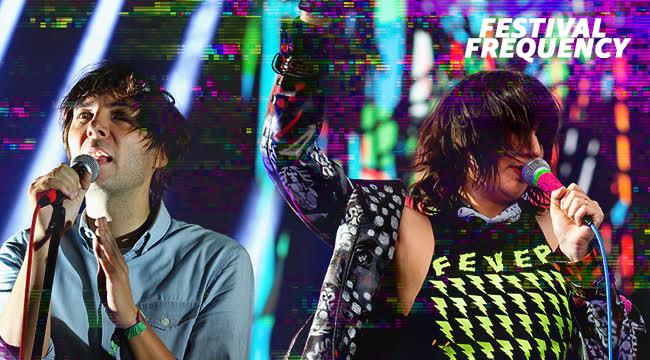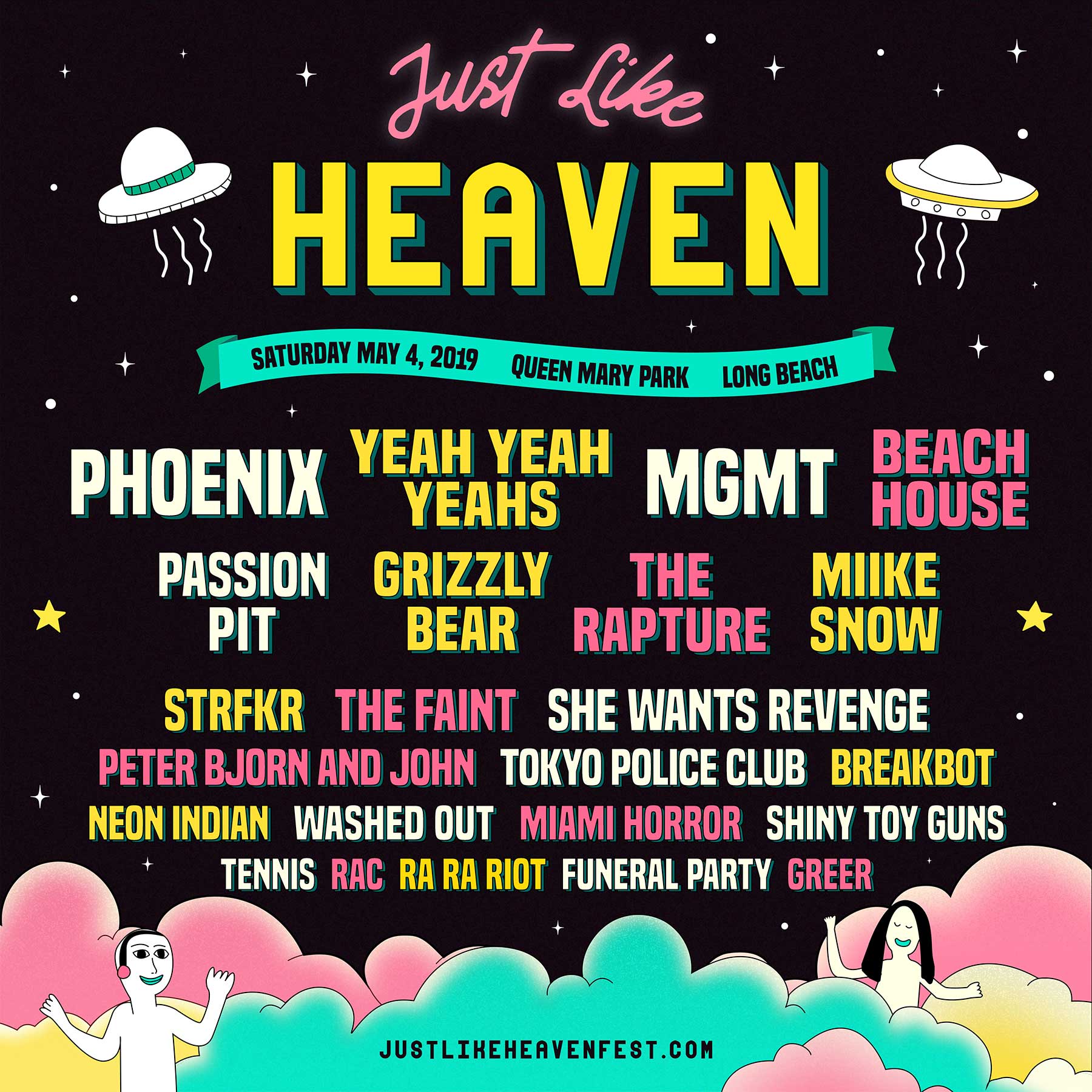
Festival Frequency is a monthly look at music festival-related topics that step beyond the shadow of the Ferris wheel, discussing everything from the performances to the inner workings that make this a global phenomenon.
Want to make yourself feel old? Look at the music from your childhood, from your teens, from college — if you’e there yet — or from after college if you’ve really started to put on the years. Now consider whether it would still be in place at a standard music festival? If you are a fan of, say, Weezer, the good news is that the band still manages to keep themselves relevant despite the now-decades of criticism for what seems like their every creative decision. But for most people outside of Generation Z, the fact is that the music of festival culture aligns less and less with the music you discovered while you were still impressionable. Instead, it’s about the songs of today, the artists of tomorrow, and the performers that mean something to the coveted 16-24 demo whose presence is most felt at these events.
And for as long as music festivals have been a thing in America, promoters and bookers have begun to quarantine certain artists with others that fit their same aesthetic. In fact, this is the roots on which American music festivals were largely built, with radio station festivals scooping up all the pop or alternative or hip-hop artists of the moment into one presentation. Touring festivals like Lollapalooza and or the nomadic Rock The Bells rarely tried to please mainstream tastes, instead serving a particular niche and owning that space for relatively brief moments in time. But as the major festival market has turned to the hyper-relevant in recent years, nostalgia and genre fests have taken on a life of their own in direct response.
These days, it feels like there is a festival for just about everyone. Goldenvoice set the bar high in 2016 with their classic rock-focused Desert Trip, an event that so quickly ingrained itself on our consciousness that planning out possible future “Oldchellas” became a whole talking point unto itself. In the punk worlds, Riot Fest and Taste Of Chaos capitalized on the Warped Tours of yesteryear, reviving those lineups as that festival continued to aim for the teen markets. Package tours can cater to fans of ’90s alternative (Everclear’s Summerland Tour), ’80s new wave (Lost 80’s Live), and classic hip-hop (Hammer’s Hip-Hop Tour). In short, if music has lost its place at standard music festivals, there is always a second life to be had — and someone to bemoan how Flock Of Seagulls deserve better.

So it shouldn’t be surprising that aughts indie rock from just the last decade has found its own nostalgic place with a new festival dubbed Just Like Heaven. Upon its announcement a few weeks back, the internet exploded with jokes, asking 2007 to take its festival back, despite the fact that the joke was mostly just explicitly stating what this festival was marketing to. Yes, it was a festival made up of artists who mostly hit their commercial and creative peak ten years earlier, with everyone from Yeah Yeah Yeahs, Beach House, Phoenix, and MGMT at the top, to artists like Washed Out, Tokyo Police Club, Peter, Bjorn, And John, and others who had all but disappeared from the current music conversation. And, as is evidenced by it selling out and adding a second day with virtually the same lineup, the thirst for this sort of nostalgia was huge, and many were just happy to have a festival cater to their tastes.
Just Like Heaven is a special case that also has many people freaked out. A big part of that is seeing artists that are generally considered still vital relegated to a nostalgia booking, like act like Beach House, who released what might be their best album last year and are still at their peak in terms of drawing power. Furthermore, Yeah Yeah Yeahs are just a year past headlining Governors Ball, and Phoenix topped the same event in 2017. But the festival world turns quickly, and though many of these artists can still find homes at events across the country, in promoter Goldenvoice’s mind, everything that no longer makes sense at Coachella is an opportunity to be something on its own. It’s a philosophy that feels strangely generous, as the audience that wants to see these bands has also largely aged out of standard music festivals. They don’t want to suffer through ASAP Rocky and Dua Lipa to see MGMT — that time in their lives has passed.
There are a couple of other aspects of Just Like Heaven that make it seem particularly significant. One is that these artists are a major part of the foundation of blog music coverage. Blogs like Pitchfork to Stereogum and our own coverage have deep roots tied to these bands, and even as all of us have pivoted to continue to cover the current sounds of today, it’s humbling to see the music that was so integral in defining an era of music on the internet turned into something characterized as, well, old. This might be the first time that millennial culture is also equated with “washed” culture, and people are handling it with varying levels of grace. But really, this is a jumping off point for those that have felt less in tune with the Spotification of festival lineups to still find relevance in the festival slate. It’s just a matter of time — possibly in their next album cycle? — that Arcade Fire, Jack White, Arctic Monkeys, The National, The Black Keys, and countless others find themselves similarly aged out of the current festival world, and how great would these artists be at festivals like Just Like Heaven, as they continue to evolve into their own festival trend.
On a long enough timeline, everything we love will eventually become the fodder of a nostalgia festival. Certainly, some artists never quite give way to the notion — it’s hard to imagine The Cure or Nick Cave jumping on an all-’80s bill or Kanye West packaging himself with some of his aughts compatriots for a revival of his old material on tour — but even massive draws like Foo Fighters and Tool have recently signed on to lead Mid-American active rock events, playing happily alongside acts like 311 and Killswitch Engage. Will there be a time that Frank Ocean and Drake and Cardi B all sign on to remember the glory of the ’10s together? Maybe not, but when something like that does happen, it will surely make a new generation of fans feel old. Then they’ll sell that thing out, because it sounds like an amazing show.






